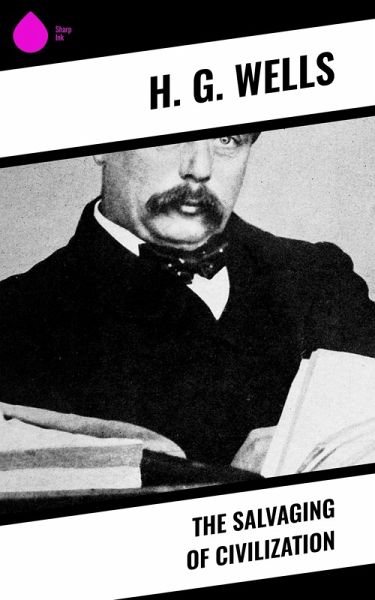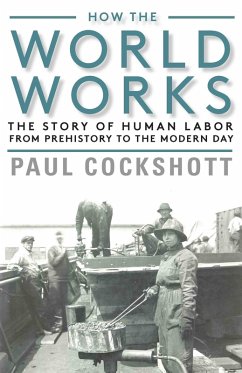
The Salvaging of Civilization (eBook, ePUB)

PAYBACK Punkte
1 °P sammeln!
In "The Salvaging of Civilization," H. G. Wells presents a thought-provoking exploration of society's trajectory following the tumultuous events of World War I. Written in a distinctive narrative style that interweaves his characteristic speculative fiction with a scathing critique of contemporary sociopolitical structures, this work examines the consequences of human beings' technological advancements against the backdrop of moral and ethical implications. With its prescient insights into the interplay of science, warfare, and the evolution of civilization, Wells's text emerges as a dialogue ...
In "The Salvaging of Civilization," H. G. Wells presents a thought-provoking exploration of society's trajectory following the tumultuous events of World War I. Written in a distinctive narrative style that interweaves his characteristic speculative fiction with a scathing critique of contemporary sociopolitical structures, this work examines the consequences of human beings' technological advancements against the backdrop of moral and ethical implications. With its prescient insights into the interplay of science, warfare, and the evolution of civilization, Wells's text emerges as a dialogue between despair and hope, urging for a visionary approach to salvage humanity's future amidst its self-destructive tendencies. Wells, a prominent figure of the early 20th century, was deeply influenced by the sociopolitical upheavals of his time, and his commitment to progressive ideals is evident throughout his oeuvre. His background in science and history, coupled with his personal experiences during the wars, inspired him to envision alternative futures, exploring how humanity might learn from its past mistakes. In this narrative, Wells not only reflects his concerns about the fragility of civilization but also his unwavering faith in human ingenuity and resilience. Readers seeking an insightful critique of civilization's trajectory will find "The Salvaging of Civilization" both challenging and enlightening. It serves as a wake-up call, imploring us to confront the darker facets of modernity while championing a more humane vision for the future. This book is a crucial read for anyone interested in understanding the complex interplay between technology, society, and moral responsibility.
Dieser Download kann aus rechtlichen Gründen nur mit Rechnungsadresse in A, B, BG, CY, CZ, D, DK, EW, FIN, F, GR, HR, H, IRL, I, LT, L, LR, M, NL, PL, P, R, S, SLO, SK ausgeliefert werden.













